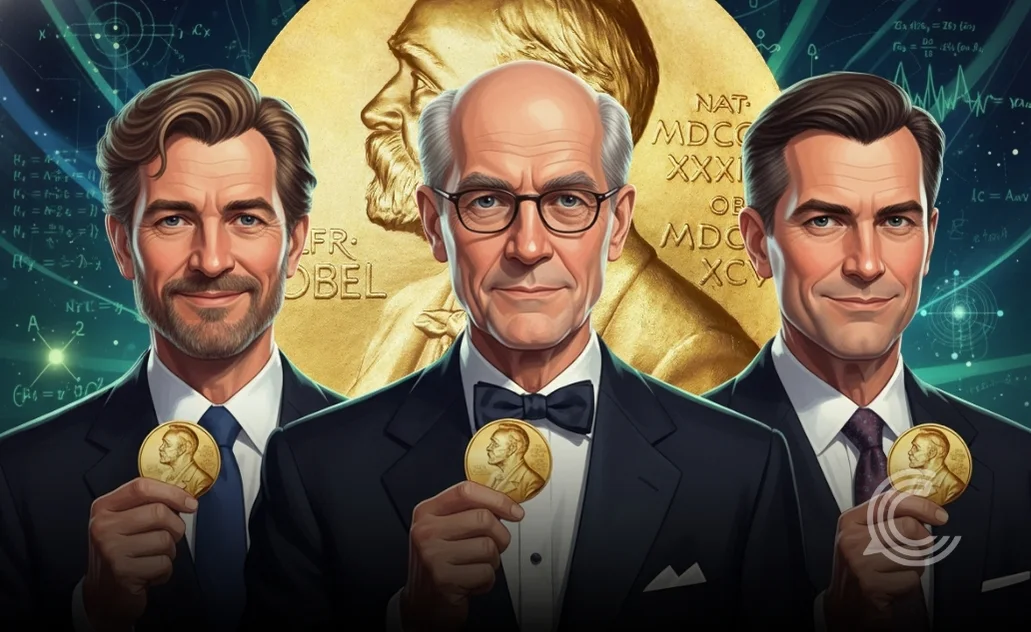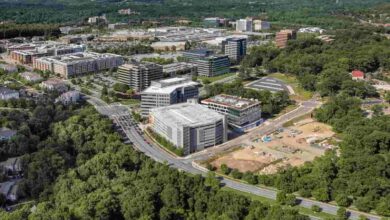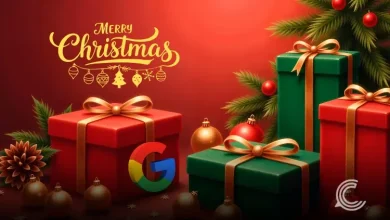Nobel Physics Prize 2025 Awarded to Three Scientists for Quantum Work

Key Highlights-
- John Clarke, Michel Devoret, and John Martinis win the 2025 Nobel Prize in Physics.
- Their experiments confirmed quantum tunnelling and energy quantisation in electric circuits.
- The discovery opens doors for future technologies like quantum computing and cryptography.
The 2025 Nobel Prize in Physics has been awarded to three scientists namely, John Clarke, Michel Devoret, and John Martinis, for their ground-breaking work demonstrating macroscopic quantum mechanical tunnelling and energy quantisation in an electric circuit.
Announced by the Royal Swedish Academy of Sciences in Stockholm on Tuesday, the award recognises a discovery that bridges the gap between quantum theory and real-world applications. All three laureates are based in the United States and will share the prize money of 11 million Swedish crowns ($1.2 million).
According to the Nobel Prize Committee, the trio’s research “provided opportunities for developing the next generation of quantum technology, including quantum cryptography, quantum computers, and quantum sensors.” Their work has shown how quantum physics, often confined to the microscopic world, can now be observed and harnessed on a macroscopic scale.
Quantum Mechanics on a Chip
As described in the official release on nobelprize.org, the scientists’ breakthrough came through a series of experiments in 1984 and 1985, when they built an electrical circuit made of superconductors: materials that conduct electricity without resistance.
The team separated the superconducting components with a thin non-conductive layer, forming what’s known as a Josephson junction. This setup allowed them to demonstrate how quantum tunnelling, a process where particles move through barriers, can occur in larger systems, even in circuits that could be held in the hand.
Their findings confirmed that quantum mechanical properties could exist in a visible, measurable form. The system behaved like a single, unified quantum particle, flowing current without voltage and then shifting states through quantum tunnelling. The appearance of voltage revealed when this tunnelling occurred, providing direct proof of the phenomenon.
A Leap Towards Quantum Technology
This discovery goes beyond theory. It has set the foundation for modern quantum technologies. Ranging from high-precision quantum sensors to powerful quantum computers that could revolutionise data security and computation.
“It is wonderful to celebrate how century-old quantum mechanics continues to offer new surprises. It’s also enormously useful, as quantum mechanics forms the base of all digital technology,” said Olle Eriksson, Chair of the Nobel Committee for Physics, in a statement.
Today’s digital chips, from transistors to memory systems, rely on quantum principles. But the laureates’ experiments made those effects tangible, taking them from the atomic scale to a system big enough to see and measure. A crucial step toward building scalable quantum machines.
Honouring a Century of Innovation
The Nobel Prizes were established through the will of Alfred Nobel, the inventor of dynamite, to honour achievements in science, literature, and peace. Physics was the first category mentioned in his will and remains one of the most prestigious.
Past winners include legendary figures like Albert Einstein, Marie Curie, Max Planck, and Niels Bohr, whose work shaped the foundation of modern physics. Last year’s award went to John Hopfield and Geoffrey Hinton for their pioneering research in machine learning that helped spark the global AI revolution.
The Nobel Prize in Physics 2025 continues that legacy, connecting groundbreaking theory to real-world impact.
A Week of Nobel Announcements
Physics is traditionally the second Nobel to be announced each year, following the Medicine Prize, which this year went to two American and one Japanese scientist for immune system research. The Chemistry Prize will be revealed next, followed by Literature and Economics.
The laureates will receive their medals and diplomas from the King of Sweden at a grand ceremony in Stockholm on December 10, marking the anniversary of Alfred Nobel’s death. The celebrations will conclude with a lavish banquet at the city hall.
The Nobel Peace Prize, awarded separately in Oslo, will be announced on Friday, rounding off Nobel Week 2025.



